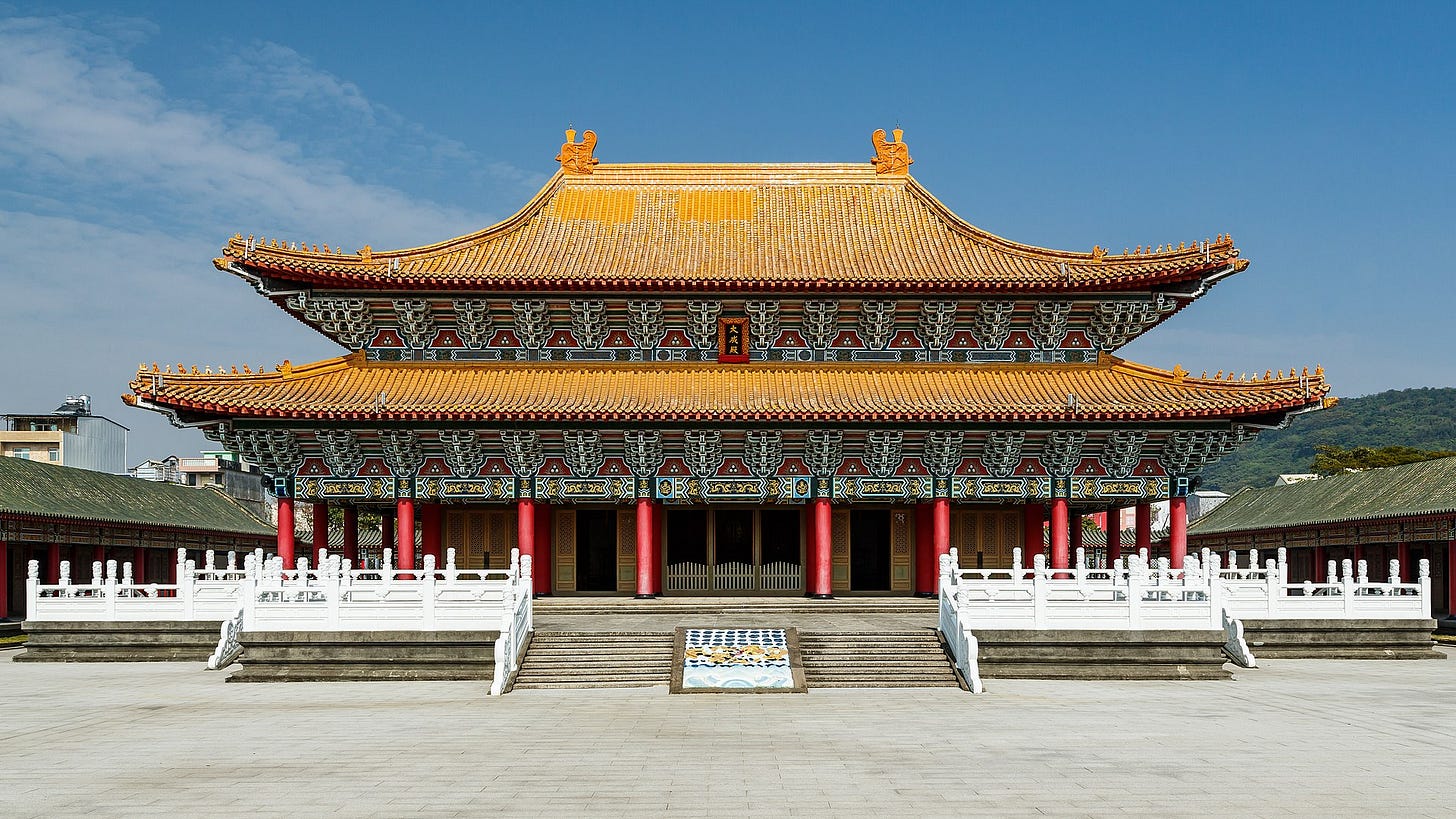Analects of Confucius
The influence of Confucius in East Asia is such that it can be compared to that of Plato and Jesus in the West.
Back cover :
The thought of Confucius (551-479 BC) had a profound impact on the civilisation of China, Japan, Korea and Vietnam. Despite the ups and downs of history, his influence is still preponderant. Along with Buddha, Moses, Jesus and Mohammed, Confucius is one of the founders of religions. Very attached to ancient values and the preservation of rituals, he lived in a troubled period when several rival states were constantly tearing each other apart. His philosophical and ethical principles had a great influence on his contemporaries, and were later collected in several works by himself or some of his disciples.
A great connoisseur of the East, Jean Lévi offers us here an inspired portrait of the Sage. He clearly reveals the originality and power of his thought. The value of rituals, respect for nature, the importance of humour and the role of dance and music are all messages that are bound to fascinate Western readers. The text is peppered with quotations and anecdotes that bring to life a master of warm humanity, whose teaching preferred example to words.
Jean Levi is a sinologist and director of research at the C.N.R.S. (French National Centre for Scientific Research), specialising in Taoism, political theories and strategic thinking in ancient China.
Reading notes
Introduction
Confucius: 5th century BC
Confucian practice contains the precious idea that the most mundane tasks can acquire a transcendent dimension.
This text has been taught in Chinese schools for 2,000 years.
Commentary: these talks have become the moral code underpinning Chinese culture. It is the "Chinese bible": it advocates personal development, the rules that govern the family, the nation and the harmony of the world.
Quotes from Confucius
"We should be less afraid of being misunderstood by men than of not understanding them".
"Govern the people by rituals".
"Study without reflection is vain, reflection without study is pernicious".
"To go to trouble so that others may reap the rewards, that is goodness".
"Wealth is not a desirable good".
"Look ritually, listen ritually, speak ritually, act ritually".
"Not to prepare a people for battle is to abandon them".
"The noble man demands everything from himself, the vulgar man everything from others".
"Don't do to others what you don't want them to do to you".
Additional notes (from other readings)
Main take-away: the influence of Confucius in East Asia is such that it can be compared to that of Plato and Jesus in the West.
In Bilan de l'Histoire (History in Review), René Grousset, a French historian specialising in Asia, points out that "Confucian morality is above all a social morality, concerned with order and harmony in the State".
In La souplesse du Dragon (The flexibility of the dragon), the French sinologist Cyrille Javary explains that "Confucius engraved another certainty in the hearts of the Chinese: the human being only acquires his or her true dimension through his relationship with others". He adds that Confucius, who was hardly a mystic, placed great emphasis on ancestral worship as the pillar linking family harmony to the civil harmony of an entire country: "When the dead are honoured and the memory of the most ancient ancestors is kept alive, the strength of a people reaches its fullness".
Confucius: "Learning something in order to be able to experience it at all times, is this not the source of great pleasure?”
China according to Confucius (franco-german TV documentary)
Confucius was born at a time of perpetual war. 8 kingdoms were fighting. He wanted to find a solution to these wars. He drew inspiration from earlier periods that were calmer: he was convinced that it was rituals and ceremonies that prevented wars.
Confucius was convinced that social harmony could be restored thanks to the hundreds of little rituals that still govern life in China today. The handshake, the relationship between spouses, between young and old, between students and teachers. The aim of these ceremonials is to instil a sense of caring in others.
His ideas are at the heart of Chinese education. Meritocracy, obedience and moral authority: they have shaped China.
Another fundamental element is filial piety (Xiao). Young people must show respect for their elders and ancestors. This was one of Confucius' most important ideas. The State is seen as a family in the broadest sense. Xiao applies to the country.
To understand China, you have to understand Confucius.
Western values are very individualistic. In contrast, Confucianism advocates attention to the group.
Confucian values give China a clear advantage in the globalised world: cooperation, study, education, discipline.




